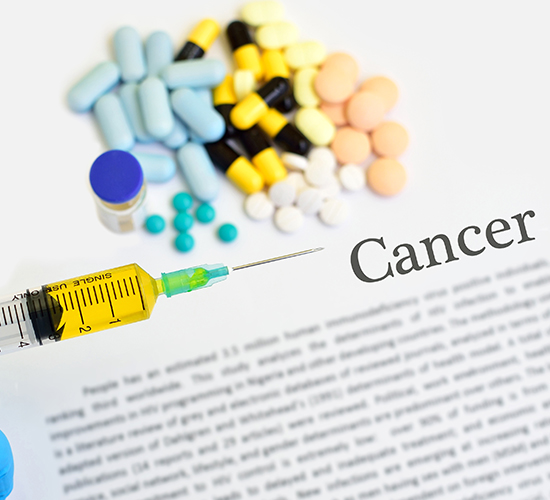Hope For Future Developments In Ovarian Cancer

We have come a long way in terms of progress in the treatment of ovarian cancer and offering many women with hope and improved outcomes[1]. If a woman is diagnosed in the early stages of the disease, the prognosis can be quite positive[2]. However, ovarian cancer can often present with vague symptoms such as exhaustion, loss of appetite, abdominal pain and gastrointestinal problems such as constant bloating and constipation that people might find difficult to recognize.[3]
Ovarian Cancer Treatment: A History
For more than 40 years, the primary treatment of ovarian cancer, which is a combination of surgery and chemotherapy have remained largely unchanged.[5] The related groups of compounds produced in this setting were critical in improving the lives of women diagnosed with advanced disease. Nevertheless, the devastating adverse effects, medication resistance and recurrence of the disease meant that women with ovarian cancer had a significant unmet need for better treatment options.[4]
The advent of targeted therapies over the past eight years has given a much-needed boost to the post-operative treatment program for women diagnosed with advanced ovarian cancer. Targeted therapies in conjunction with chemotherapy and/or as monotherapy (depending on the therapeutic agent) have substantial superior effectiveness relative to chemotherapy alone.[4],[6],[7],[8]
Ovarian Cancer: The Future
Pipeline breakthroughs and experimental treatments are the advances, we hope to see in treating this deadly cancer soon. Already expected to come through in this disease is the implementation of immunotherapies and combinations of immunotherapies with other targeted therapies. We continue on our journey as the pioneer in cancer care to support women with ovarian cancer.
References:
- www.seer.cancer.gov/statfacts-ovary
- www.cancer.org/cancer/ovarian-cancer/detection-diagnosis-staging/survival-rates.html
- https://www.foundationforwomenscancer.org/gynecologic-cancers/cancer-types/ovarian/
- Roche. Avastin (bevacizumab) Summary of Product Characteristics (2016).: https://www.ema.europa.eu/en/medicines/human/EPAR/avastin
- https://www.asco.org/research-guidelines/cancer-progress-timeline/ovarian-cancer
- Roche. Avastin (bevacizumab) Prescribing Information (2015).: https://www.accessdata.fda.gov/drugsatfda_docs/label/2009/125085s0169lbl.pdf
- AstraZeneca. Lynparza (olaparib) Summary of Product Characteristics (2016).: https://www.ema.europa.eu/en/medicines/human/EPAR/lynparza
- AstraZeneca. Lynparza (olaparib) Prescribing Information (2016): https://www.accessdata.fda.gov/drugsatfda_docs/label/2018/208558s001lbl.pdf